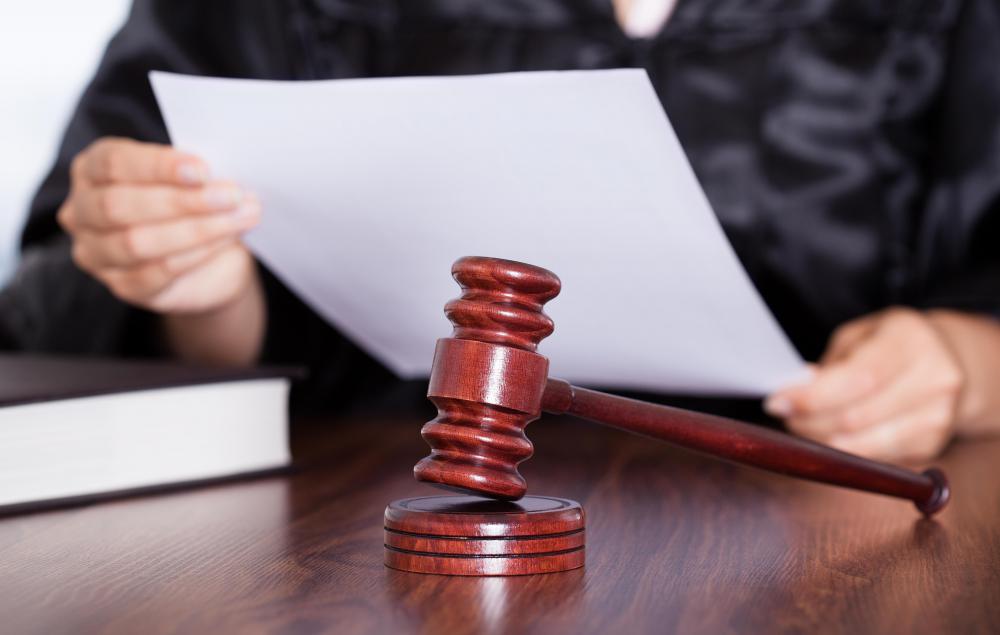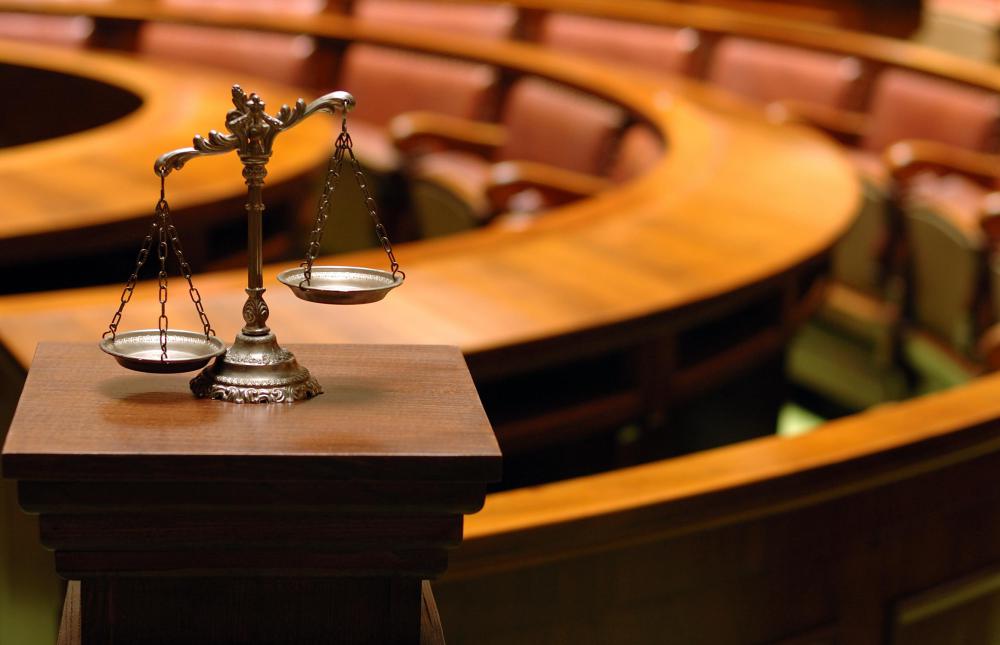At WiseGEEK, we're committed to delivering accurate, trustworthy information. Our expert-authored content is rigorously fact-checked and sourced from credible authorities. Discover how we uphold the highest standards in providing you with reliable knowledge.
What is a Pretrial Hearing?
A pretrial hearing, sometimes called a pretrial conference hearing, is a formal meeting between the two parties in a case and the judge or a magistrate. In criminal cases, this type of hearing is generally used to disclose information about how the case will proceed. In civil cases, the parties use the opportunity to meet with the judge to clarify legal issues and other matters that can be handled before the trial. One for a civil case often involves more than one for a criminal case does. There are some similarities, however, such as the tendency for judges to answer motions and the ability to conclude the case without having a trial.
Several steps are usually involved in a criminal case. A pretrial hearing normally follows an arraignment, when the charges against a person are formally read, and precedes the trial, where the accused party's guilt or innocence is determined. In a criminal case, at such a hearing, one of the first things that may occur is the prosecutor will attempt to substantiate the validity of bringing a case before the court.

The prosecutor may present arguments, physical evidence, and sometimes witnesses to convince the judge that his accusations are reasonable and valid. He must also convince the judge that there is reasonable cause to suspect the defendant. This part of the process may be avoided if the suspect has already been indicted by a grand jury.
The accused (or his lawyer) may argue that the charges against him are unreasonable or unfounded. He may question evidence or witnesses presented by the prosecution. The accused also has the option not to raise any concerns about the case. If the judge feels that there is sufficient cause to continue with the case, he usually determines what type of trial will be held and the trial date. When a judge deems that the prosecution has not demonstrated sufficient grounds for its accusations, the case is dismissed.
The pretrial hearing is also generally the point in the proceedings where the accused will enter his plea. If he pleads guilty, a trial is not necessary. Motions, which are requests to the court, may also be heard at this time.
The individuals required to attend can vary. In some instances, the presence of attorneys is not needed. In other instances, an attorney may appear on behalf of his client.
AS FEATURED ON:
AS FEATURED ON:













Discussion Comments
Can the family of victms go to pretrials?
No justice but what you can pay for!
My 17-year-old grandson was accused of menacing
and of writing a threatening computer-generated note to a teacher.
His laptop and my PC tower were taken by our sheriff's department and they went through them, but found nothing, and he maintains he had nothing to do with it.
He was jailed for 14 days with no charges against him -- only the word of two students who said he told them he did it. He claims he did not tell anyone this. Where is the justice in this?
Post your comments